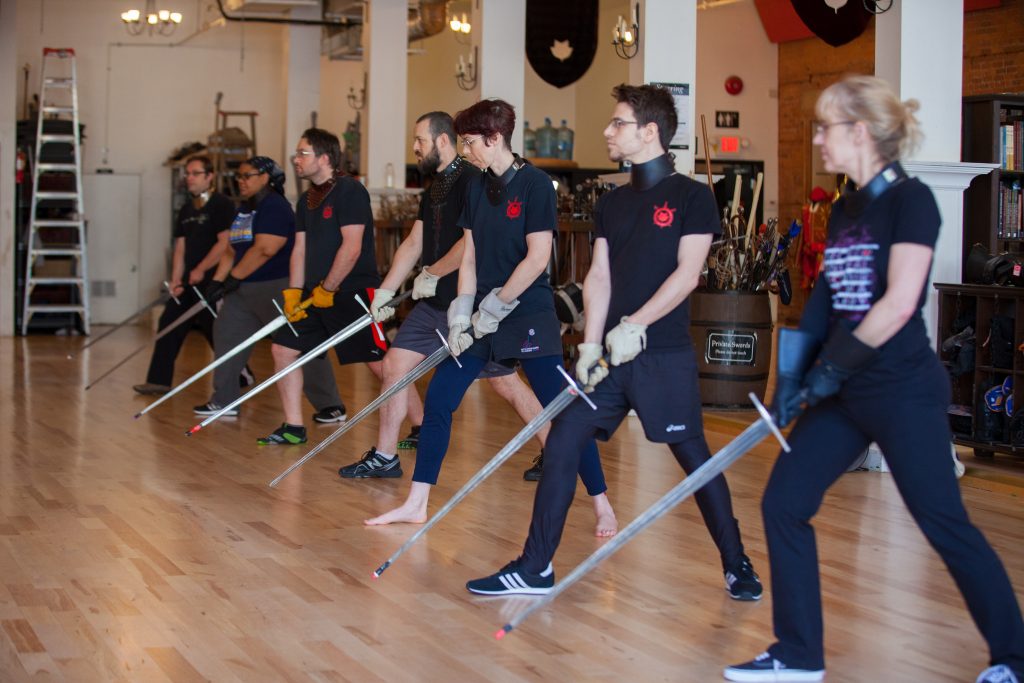I no longer teach students. I teach teachers.
I say this not because I only teach people who intend to share the art with others. I say this because over time I have realized that every student is a teacher, at least of themselves. All I can do from the head of the class is facilitate, introduce new ideas, and share my experiences. Each student in my class must learn to be their own teacher so that they can help facilitate their own hard work in truly internalizing what the experts around them have to share.
Whenever I'm in front of a group I try to seize the opportunity to have the meta-conversation. To teach about learning. That's why I thought it would be worth reaching into my archive of past posts to re-share a few things I try to say to myself and the learners around me as often as possible.
"There’s no such thing as talent."
Talent is a seductive and destructive idea to one’s practice of martial arts. It feeds the part of us that believes we should be good at things right away, or just give up. It leads to unfair comparison between yourself and other students in the class, and it can kill motivation overall.
Countless studies have shown that talent, i.e. one's genetic ability and qualities, has little influence over success in complex skills (such as swordplay) and that putting in hours of practice is the most significant influencing factor.
It’s essential that you keep directing your mind and the minds of your group toward growth through practice and away from the belief that talent has anything to do with success. In this way, you can combat negative self-talk and keep putting in the needed energy to truly get results.
Further reading: Outliers by Malcolm Gladwell.
"If you’re not failing, you’re not really practicing. So make sure you’re failing."
Time spent practicing is not the only factor of training that dictates long-term success in martial arts. The quality of practice is essential. If you’re not failing in your solo drills, partner drills, and sparring, you’re not challenging yourself enough. Teach your students to increase the difficulty of their training. Constantly encourage your students to fail and push toward the edges of their ability. It is essential as leaders that we wipe out the stigma of failure.
Further reading: Bounce by Matthew Syed.
"Praise yourself for facing challenges, not for getting results."
Failure-avoidance, and thus challenge-avoidance, begins with our beliefs about both the world (for example a belief that talent is what matters and not practice) and our self-image. Dr. Carol Dweck, in the studies that lead up to her book Mindset, showed that you could negatively impact the IQ of a child simply by praising them for being smart. Children who had been praised for being smart, when encountering failure, retreated to easier practice and avoided new challenges. They did not want to shatter the established image of being “smart”. Children who were praised for hard work and their willingness to face challenges were more eager to seek greater challenges and more likely to excel beyond their smartness-praised peers.
Be savvy about how you praise your martial arts students and be sure to apply the wisdom of this research in your own self-praise. It is greater to face a big challenge and grow than it is to face a small challenge and succeed.
Further reading: Mindset by Carol Dweck.
March Instructor Intensive
If you are interested in deepening your capacity as a teacher, a learner, and a leader, I invite you to join me March 5th to 9th in Vancouver for a 50-hour intense and transformative experience in the art of swordplay. The Academie Duello Level 1 Instructor Intensive covers in-depth material for the practice of the rapier and longsword, as well as 10 dedicated hours to teaching and learning methodology. This is a program that has been shaped by thousands of students and highly praised by teachers and practitioners from around the world.
There are a few spaces left in March. I encourage you to come.
Enjoy your training!
Devon
